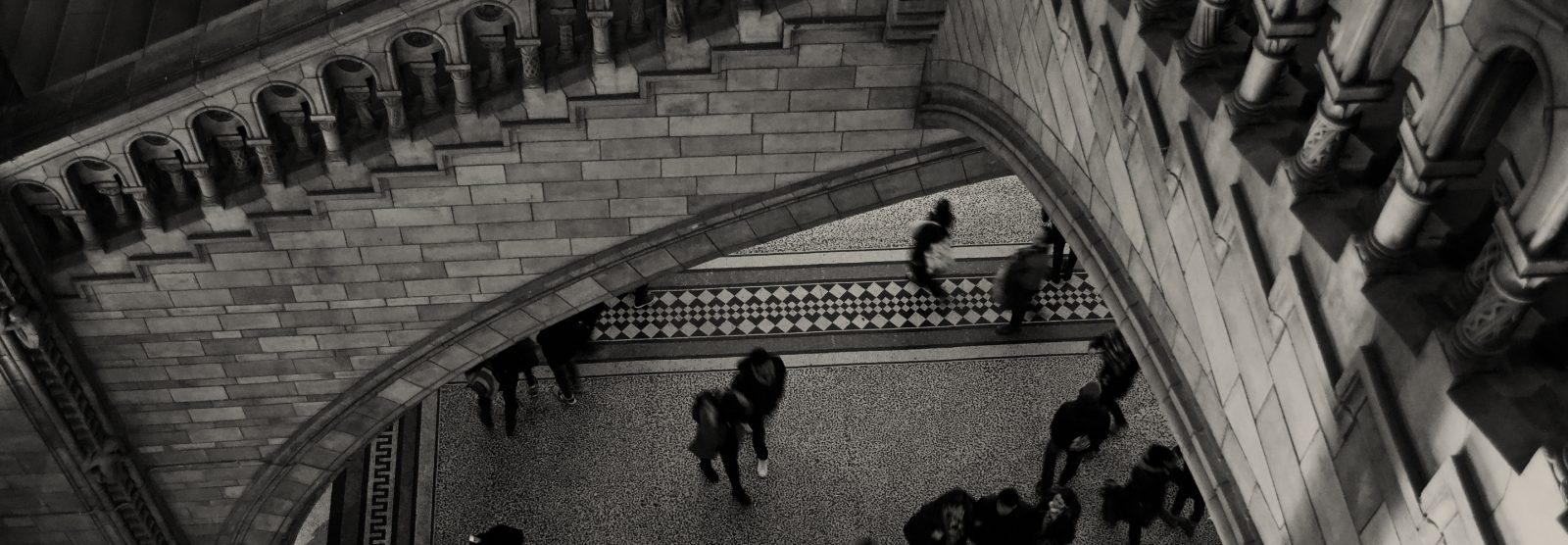More Violence at the Door
Domestic violence survivors shouldn’t have to survive police violence, too. It is time to follow the evidence to interventions that actually work.

TOPICS
157 posts in ‘Institutions & Practices’
Domestic violence survivors shouldn’t have to survive police violence, too. It is time to follow the evidence to interventions that actually work.
Prisons are sites of pervasive medical neglect, both creating and worsening disability. Never was this more the case than during the COVID-19 pandemic.
Incarcerated people are eligible for Pell Grants again—but will prisons actually allow us to flourish as college students?
ShotSpotter has leveraged gun violence into a multimillion-dollar business that promises safety but delivers only increased policing and drain on the public’s resources.
Being forced by prison authorities to publish anonymously caused me to reflect on the long history of Black authors choosing names in response to state violence.
During the mid-twentieth century, the Bureau of Prisons ran two “narcotic farms” that muddled medical care with incarceration, part of a growing trend that criminalized addiction.
Efforts to improve incarceration for women ultimately support a system that is worse for all.
I rejected a plea deal and chose instead to go to trial. I would not understand until too late that I had placed a target on my back.
This year I passed a grim milestone: I’ve now been in captivity longer than I’d been alive when I was arrested.
There are no good prisons—but even minor design changes could make them less awful to be trapped inside.
The deadly labor action can best be understood in the context of white supremacy and class struggle.
A new book doubles as a detailed chronicle of, and guidebook to, surviving incarceration on New York’s Rikers Island.
At a far-flung prison in Virginia, conditions are so inhumane that those imprisoned there are setting themselves ablaze in protest—and to assert their humanity.
The Trump administration will assail our movement. That doesn’t change the fact that it looks backward while we look forward.
Abstinence-only drug treatment doesn’t work. For people in prison, where drugs flow freely, such programs simply place them at greater risk of relapse.
An incarcerated researcher explores how childhood trauma often shapes the lives of those in prison.
Defense lawyers should be open to advising their clients about systemic oppression, laying bare the ways that mass incarceration ensnares.
The routinized violence of prison strip searches robs incarcerated men of their health, sexuality, and so much more.
The United States has long treated street and corporate wrongdoing differently. Looking beyond this dichotomy can help us end mass incarceration.
A decade of victimization landed a Harlem kid in prison. More than three decades later, he has not allowed prison to define his life story.
Many women escaping violence in their home countries find themselves trapped in the formal violence of the asylum system.
A second Trump presidency may render police accountability elusive. But, as before, people and communities can and will fight back.
Sex offender–specific treatment can leave you feeling humiliated. Or it can ground you, help you grow, and remind you of your worth.
Your right against self-incrimination is not safe in a criminal system that cares more about coercing convictions than about finding the truth.
Placing criminal system tools in health-care providers’ hands causes irreparable damage to patient care and public trust.
California is discovering the hard way that you can’t leave decarceral reforms in the hands of prison officials.
'Excited delirium syndrome' is a tool the state invented to evade accountability whenever people of color die at the hands of police.
Electing progressive sheriffs only goes so far toward curbing the structural forces that sustain mass incarceration.
The push by Atlanta and other cities to build large police training facilities follows on a long history of armories as both symbols and manifestations of the state’s power.
An incarcerated writer and advocate in California implores: “Don’t waste my time trying to make it more comfortable for me in here.”